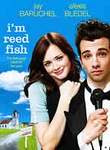 Away From Her (Sarah Polley, 2007) [7]
Away From Her (Sarah Polley, 2007) [7] For a first time director, Polley has made a solid but by no means spectacular film, as some reviewers are wont to believe. Julie Christie's performance is solid but not nearly as great as the reviews state. From those reviews, you would think that the film centers around Christie's character but the film is more from the husband's viewpoint, played by Gordon Pinset. The film, after all is called Away From Her. I really don't want to knock Christie's performance because it is good but I found Pinset just as credible and dealing with a lot more complicated emotional issues. It's the nature of the story that Grant, being the husband, has to deal with the brutal realities more directly than his wife. Polley, who also adapted the screenplay from an Alice Munro short story, does a good job of handling the complexities and turmoil that the two main characters' relationship and love go through. What is impressive of her direction, especially for a first-timer, is that she a pretty good hold on a continuity of style throughout. She floods her scenes, especially in the assisted living home, with light, which is always being mentioned by the home's director. Even the elements that I think don't work so well, such as the ellipses in the narrative and too much camera movement in key scenes, aren't too much of a detriment because they are consistent in the style Polley's established. The acting performances also carry the film above any flaws in the style. Christie and Pinset's insightful and emotionally deep performances are key and Polley does a good job of keeping the film's focus on them.





